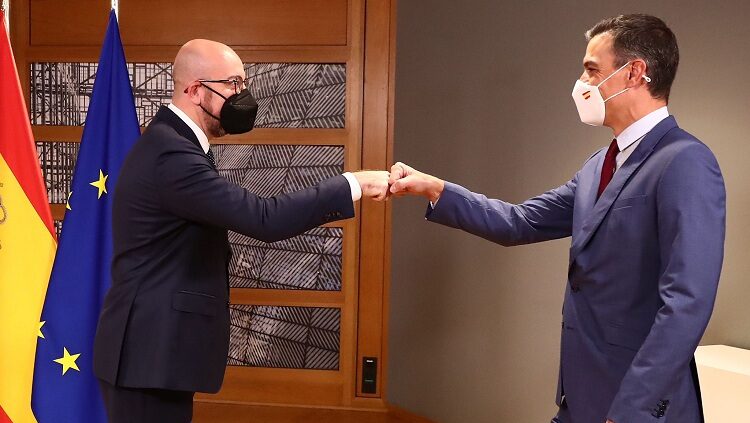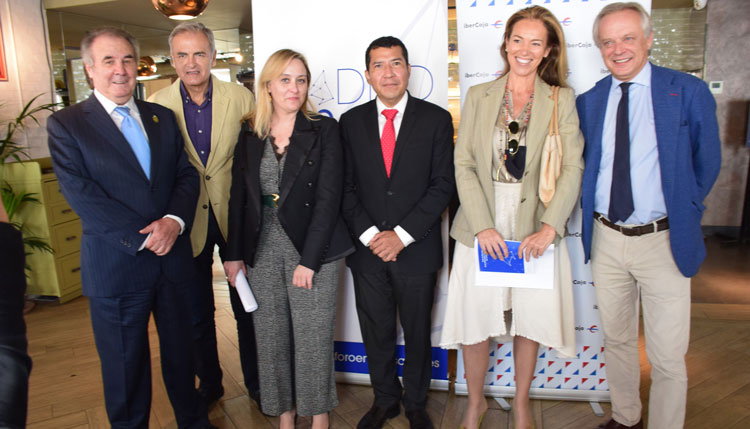Eduardo González
The President of the Government, Pedro Sánchez, went to the European Council yesterday with the message that the rise in energy prices “is not an isolated event in Spain” and, therefore, the solutions “must be European”. Finally, the European leaders agreed to refer any decision to the Council of EU Energy Ministers, convened for next Tuesday.
Sánchez’s day in Brussels began with a working breakfast with the President of the European Council, Charles Michel, and continued with a meeting with the President of the European Commission, Ursula von der Leyen, with whom he reviewed the topics scheduled for the Council, “among them, the response to the rise in energy prices and strengthening the recovery”, as reported by the head of the Executive through his Twitter account.
The most important point of the Council as far as Spain was concerned was that of energy prices, which was included in the agenda at the initiative of the Government of Pedro Sánchez in a new attempt to convince the rest of the leaders to accept the proposal presented last September by Spain to the Commission. The proposal foresees, among other measures, the centralization of the purchase of natural gas – similar to the unified European scheme for the acquisition of COVID-19 vaccines – in order to contain electricity prices and try to “reduce dependence” on this fuel in the short and medium term, as well as an increase in the negotiating power of the European Union to obtain more advantageous prices, the creation of greater strategic reserves to avoid market fluctuations or measures against speculation in the CO2 market.
In mid-October, the Commission presented a communication in which some of the measures proposed by Spain -such as joint gas purchases- were put on hold for the medium term and asked the Member States to give “priority” to actions already provided for in current European legislation that could have an “immediate” impact. In the opinion of Brussels, the current scenario is merely temporary and the main cause is gas prices, which “will remain high during the winter months and will fall in spring, when the situation is expected to stabilize”. Spain has described these proposals as “insufficient”.
Before the start of yesterday’s meeting, Sánchez admitted to the press that Spain would like to “go faster, but in Brussels steps are taken at a less intense pace than we would like.” “We always aspire to greater ambition and to incorporate a sense of urgency into this debate, because this situation can undermine the competitiveness of the European economy,” he added.
Finally, and as the President of the Government feared, slowness prevailed again yesterday in Brussels and the European Council decided to postpone the matter to the Transport, Telecommunications and Energy Council, which will meet on October 26 and in which the EU energy ministers will hold an exchange of views on the aforementioned Commission communication and will discuss possible measures to mitigate the price increase at national and EU level. Spain will be represented by the Minister of Ecological Transition, Teresa Ribera.
Sánchez appeared yesterday in Brussels with the support of southern countries such as Portugal, Italy and Greece, and even France – a country with a large fleet of nuclear power plants and whose government defends the review of the current functioning of the electricity market – but could not convince countries like Germany or the Netherlands, which prefer to go slowly and in accordance with the Commission’s proposals. “I think we have to react cautiously,” declared German Chancellor Angela Merkel, who yesterday attended her 107th (and probably last) European Council. Germany is Europe’s largest customer for Russian gas and is about to inaugurate a direct gas pipeline with Russia.
Finally, the Council yesterday invited governments to make use of the Commission’s proposals – Sanchez himself admitted that they could be “useful” to improve the situation of the most vulnerable consumers and businesses – but in a prudent way and in a way that could be reversible; called on the Commission and the Council to propose medium and long-term measures to ensure affordable prices for households and businesses, to increase the resilience of the EU energy system, to secure supply and to support the transition to climate neutrality; and asked the European Investment Bank to contribute to the energy transition “within its existing capital margin”. In any case, everything will be referred to next Tuesday’s Council of Energy Ministers.







